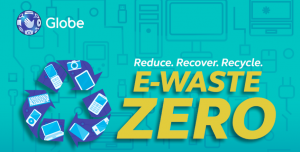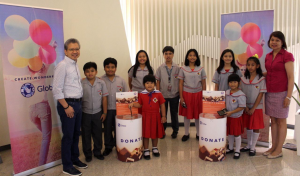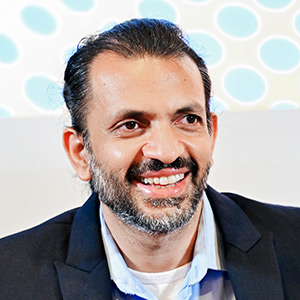Our journey covering MNO best practices started with AIS in Thailand and then moved across to Vodacom in South Africa. This week, we move to the Philippines to talk about E-waste Zero (previously known as Project 1 Phone) managed by the Globe Telecom team.
As our blog series continues to explore MNO electronic waste (e-waste) management efforts across Asia and Africa, we would like to draw your attention to some unique aspects seen in each of these projects. These help us to draw parallels between efforts implemented independently, and in many cases voluntarily, across different markets. The three key aspects we see in Globe’s E-waste Zero project are:
- Collection of all e-waste items (not being limited to mobile devices)
- Multiple partnerships
- Plans to link with the informal sector
 About E-waste Zero project
About E-waste Zero project
Globe’s comprehensive sustainability framework covers four main thematic areas: Care for People, Positive Social Impact, Digital Nation and Care for the Environment. E-waste Zero is Globe´s flagship environmental project under this framework. The project was launched in 2014 and has grown into one of the strongest e-waste collection efforts in the Philippines today. The project focuses on the responsible disposal and recycling of e-waste. It provides a platform for (1) corporations and organisations, and (2) the general public to participate by donating their old, out of use electronic and electrical devices/equipment in participating Globe Stores and Ayala Malls across the country.

Students from Creative Education for Life Learning, Inc donated their e-wastes at The Globe Tower and are joined by Ato Jiao, Globe Chief Human Resources Officer, and Yoly Crisanto, Senior Vice President and Chief Sustainability Officer
Project objectives
The E-waste Zero programme is driven towards two annual targets:
- Total kilograms of e-waste collected per year / Total per cent of waste diverted from landfills
- Total number of partners for the programme
By setting challenging annual targets, the team has managed to collect over 343,000 kg in 2019 alone bringing the cumulative collection to more than 1.2 million kg since the programme started in 2014. Also, emphasising that e-waste is not a problem only one organisation can manage alone, the project already has more than 50 corporations and organisations who have partnered with Globe.
How it works
Globe already has more than 70 active collection points across the Philippines. If an individual customer wants to dispose of their e-waste, they can contact Globe to find out the closest collection point and drop off the item. Other than lead-acid batteries, customers can bring any type of e-waste. If it’s a corporate partner, they can reach out to Globe and arrange collection points, logistics of collection, and agree on awareness creation plans with the team.
The majority of the collected e-waste items are processed by TES-AMM Philippines, which provide a detailed report to Globe and start the recycling process. TES-AMM segregate, treat and store the waste in their facility in the Philippines. However, any remaining items are then exported responsibly to their main facility in Singapore for further processing and extraction of precious metals. The total proceeds are handed over to Habitat for Humanity, a charitable institution that develops low-cost housing and schools for the disadvantaged communities. A corporate client would receive all evidence and reports of these processes.
Key partners and beneficiaries
Being more than only a mobile take-back initiative
E-waste is not only a cause for serious environmental issues, but it also creates complex social challenges. According to the 2017 Global e-waste monitor, more than 80 per cent of e-waste is managed through the informal sector in developing countries. This results in multiple health and safety, and other social challenges within the e-waste management ecosystem.
Understanding these complex and interlinked challenges, Globe works with multiple partner organisations in different sectors, providing them a platform to work towards sustainable solutions. These include providing:
- Business solutions to corporate clients for their day-to-day operations and, at the same time, helping play a role in the e-waste management process (logistics, collection, recycling); and
- An advocacy platform for partner organisations to manage the e-waste they generate internally.
Earlier this year, Globe started exploring collaboration opportunities with the Ecowaste Coalition (Philippines-based NGO) as an attempt to include the informal sector in the Philippines and link them to the formal e-waste sector. This is something that the team are interested in looking into, especially if it brings safe and added livelihood to the local communities during the Covid-19 pandemic.
Beyond 2020 towards zero e-waste
As the programme grows into its seventh year of operation, the Globe team have identified several areas that they would like to improve and work with other supporting organisations.
- Involve more recycling partners in the Philippines, especially in Visayas and Mindanao regions. This would enable Globe to reduce the logistical challenges to transport the collections to either Cebu or Manila where they are currently processed.
- Knowing customer behaviour is one of the key factors that has a direct correlation to the success of Globe’s e-waste collection effort – introducing a new campaign to influence customers to bring their e-waste to the collection points would significantly help to improve the collection.
- Understand the key role played by the Department of Environment and Natural Resources (DENR) in this project, and how they influence other organisations to participate in existing e-waste management efforts in addition to simplifying the e-waste collection process.
- Look towards a more sustainable supply chain where device or technology partners collaborate with Globe in creating a closed loop process that will eventually eliminate unnecessary waste.
For more information about Globe and its sustainability programs, email [email protected], follow Globe Bridging Communities on Facebook or visit Globe Sustainability.


